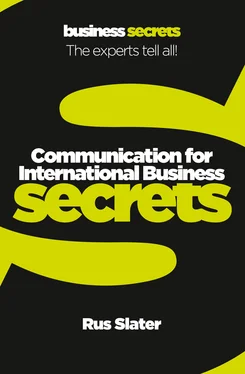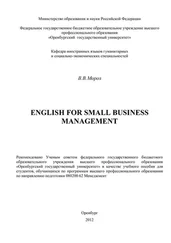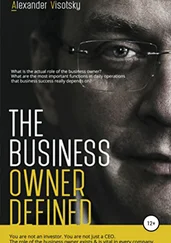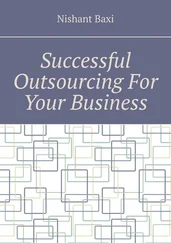A question you may innocently ask may be impossible for her to answer for another eight hours. But her environment is so different to yours that you have no idea how much pressure that innocent question may put her under.
Take a bit of time to investigate the situation in which your international partners work, whether they are colleagues, suppliers or customers. Even people who seem to have the same type of job as you may be in a very different situation; local politics, the climate or weather, the season, the time zone and local working practices can all make for very different circumstances.
Then try to remember this each time you speak with them or send them an email or text message.
You dialled their number and they answered but it is easy to forget that they may be in a completely different environment to you.
1.5
Beware generalizations
OK, that is ironic; to start a section warning of the danger of generalizations with a generalization. This book contains plenty of generalizations; it talks about people from specific countries as if they were stereotypes. It talks about media of communication as if everyone used them in exactly the same way. Clearly that is dangerous … so beware these generalizations.
When we accept any generalization as a ‘rule’ we are bound to make a massive mistake somewhere down the line. This relates to generalizations about people:
▪ Not all people of a particular race behave in exactly the same way; they will have been exposed to a greater or lesser degree to people from different cultures. They will base their opinions on different life experiences. They will have read and followed different ‘thought-leaders’.
▪ No one person from any particular race or culture can be deemed to speak for their entire nation, regardless of their position in their national hierarchy. Neither will they know what everyone else in their native country thinks about any given topic.
▪ It can be deeply insulting to make assumptions based on national stereotyping; so don’t.
▪ Beware also generalizations regarding generations; not everyone under the age of 25 is on Facebook. And some people over 50 are.
Beware generalizations about methods of communicating:
▪ Not all international phone carriers charge the same rates.
▪ Calls from Country A to Country B may be charged at a different rate to calls from Country B to Country A.
▪ VOIP may work brilliantly between two specific areas, but may be appallingly ineffective between two other specific areas.
▪ Some people are brilliant at running virtual meetings using conference call or VOIP, other people are absolutely useless (trust me, I’ve ‘attended’ some fantastic international remote meetings and some complete wastes of time!).
▪ Sometimes a phone conversation is the best way to communicate and sometimes an email is actually much, much better.
▪ International call routing now means that a call can show on your phone as originating in London, but the caller may be in Lahore.
When communicating internationally it is really important to engage your brain before operating your mouth.

Now it is time to open your mouth or put ‘pen to paper’. This chapter contains nine simple and straightforward ‘rules’ that, if followed, should help you to get your message across to others over the seas. Some of these rules are of the ‘thou shalt not’ variety; things to avoid like the plague (for example, using idioms such as ‘avoid like the plague’).
Some of them are exhortations to consciously do something; such as explaining acronyms and testing readability!
Some are caveats or warnings which highlight things that you probably wouldn’t need to think of when communicating with your own nationality.
2.1
KISS – Keep It Short and Simple
When you are communicating with people who are not native speakers of your own language, remember that in their heads they may have to translate every word you say. Then, once they have translated the words themselves, they have to analyse the meaning. This is not an easy process. It takes time.
If I’m trying to translate what you just said, and at the same time you say something else, it can become very confusing.
I’ll probably miss one thing completely.
Or I might lose both!
So when speaking, keep your interjections short. Only cover one topic per ‘soundbite’.
Leave a pause for people to absorb what you have said.
Ask for confirmation that that part of the message has been understood.
“I didn’t have time to write a short letter, so I wrote a long one instead” Blaise Pascal (1623–62)
This is also good practice with written communication. Try to keep texts or emails to a single screen (bearing in mind that many people read their email on a smart phone, so a ‘screen’ may be only 50 or 60 words).
This will take more effort on your part; it is actually easier to ‘ramble’ than it is to be concise, so plan enough time to think about paring your communications down for the international audience.
This isn’t a matter of dumbing-down or being patronizing. However, try to use simpler words rather than longer or more complex ones; so for example:
| Use … |
Instead of … |
| Make happen |
Facilitate |
| Lose value |
Depreciation |
| Belief |
Paradigm |
| Combined effect |
Synergy |
Short and simple is harder than long and freewheeling, but it is worth it in the long run.
2.2
Explain TLAs (Three Letter Acronyms)
Most industry sectors and organizations abound with acronyms (not necessarily three- letter ones). They are a useful and usually valid way of saving time when constantly referring to something that can be abbreviated. However, this can be very confusing to people who speak a different language, especially when an acronym gets further abbreviated; for instance, Bayerische Motoren Werke becomes BMW becomes ‘Beemer’.
Acronyms can create confusion in several ways:
▪ I heard the letters but wasn’t sure it was an acronym or a word I wasn’t aware of; did you say TLA or tee elay?
▪ I heard the letters and know it is an acronym but I don’t know what they stand for and I’m embarrassed to ask.
▪ In English the acronym for the defence alliance is NATO but in French it is OTAN.
▪ The acronym makes sense in your language but not in mine; for instance in English we talk about 5 a.m. or 5 p.m. These are acronyms from the Latin words ante meridian and post meridian . The Italians don’t use the Latin or the abbreviation but actually say (in Italian) 5 in the morning or 5 in the evening .
▪ An acronym can sound like a word with a different meaning; for instance, NASA the American Space Agency and Nasser the Arabic name, or SALT the Strategic Arms Limitation Treaty and salt the chemical or foodstuff.
▪ Any acronym can have numerous meanings even in the same language; the acronym SAS can mean a British military unit, a Scandinavian airline, an environmental charity for surfers or a software brand.
While the context can provide a clue as to which acronym you are using, avoiding the use of an acronym altogether simply makes it easier for the other party to understand the message … which is your aim after all.
Читать дальше













